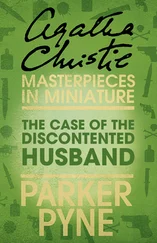“Now you go straight to the hospital and get those legs looked at,” she said and Charlie grinned lavishly, opening his arms wide, teetering like a chopped-at tree. “Off you go,” she said and ushered him out.
His rancid pants and shirt she flung into the dumpster. She took the squat brown bottle of rice wine he’d forgotten and poured it down the drain, calling it payment for the new clothes. Her opinion, one she would never have spoken aloud, was that these people behaved mostly like little children — careless, impulsive, selfish. Perhaps no one had ever taught them to care for themselves, she had no idea. It was just that possessions didn’t seem to matter to people anymore, not how they once did. She gave them nice warm coats, good-quality jeans and blouses and skirts, she gave them toasters and dishes, sometimes even furniture — all of which they lost, or ruined, or sold, or even just threw away. And they treated themselves no better than the things she gave them.
She’d always liked to think if she found something perfect enough for them they’d have to keep it, care for it and in doing so acquire a taste for caring for themselves. But when dealing with people like Charlie she feared there was something missing, something essential they lacked, something that her thrift store could never provide.
On the rumbling bus home from the store that evening, Bernice tried to imagine the coach house, glittery lakeside sun dancing on the floor of her little room. She tried to select just one item in her collection she could part with, just one that wasn’t necessary, but this left her feeling cruel. She remembered as a girl the horror of finding even one of her stuffed animals on the floor when she woke and the subsequent guilt at imagining it there the whole night, shivering, crying out, imploring in its silent stuffed-animal language how she, their only caretaker, could be so heartless. No, there was no part of her collection she could be rid of, no part that was less worthy. She decided to put the whole coach house question to rest.
She sat on the varnished pew in the teal Orlon skirt she used to wear to sell shoes. “When did you get so dowdy?” she’d said to herself in the mirror that morning before digging deeper into the recesses of her bedroom closet than she had in years.
Never much of a believer, she came to church partly for the singing and mostly for when the pastor referred them to a passage in the Bible. She loved to lick her fingertips, peel the thin pages, discover the numbered verse there waiting for her, right where it should be, charging her with a joy comparable to when she opened the store each morning.
“Blessed is he that considereth the poor: the Lord will deliver him in time of trouble,” the pastor began, his voice chalky with feeling. “Fat chance of that,” Bernice muttered to herself, and dropped the burgundy King James back into the slot in the pew ahead. It’d been two weeks since her sister’s phone call, and Bernice found herself unexpectedly bothered by the lapse. A few nights ago she dreamt that Charlton Heston as Moses from The Ten Commandments had pulled up out front of her shop in one of those new truck-style limousines she’d seen lately on the street, the ones the size of a school bus.
“This place is cursed,” he’d said, speaking as if he hated his teeth.
In the way one does in dreams, she knew instantly he’d come to drive all the poor, wretched people to another place: a safe, fertile and hospitable land where they could prosper. She saw his tan robe protruding from the vehicle where he’d slammed it in the door.
“It’s not so bad,” she said, just as hundreds of impoverished souls suddenly emerged from the alleys, teeming from the crack hotels and doorways, running or limping as fast as their rotting bodies could carry them. She watched them open the limo’s countless doors and pile into the vehicle like a clown car in the circus.
Charlton flexed his beautiful face beneath his beard as he electrically raised the window.
“Don’t,” Bernice said as the limo pulled away, people perched dangerously on the bumper and dog piled on the roof. She kicked off her pumps and chased them for a few blocks, pleading for Charlton to stop. It was no good, she would have told him if he’d slowed; these were no Israelites — they packed their masters with them, their horrid childhoods, their illnesses and deformities, their plagues, their bedbugs and lice, their rats, roaches and unforgivable sins. And the drugs and drink wouldn’t be far behind. Someone would bring those too. Or they’d make new drugs. She watched the car sail through a red light and woke to her cat kneading painfully on her chest.
“Who can make straight what he has made crooked?” the pastor said. Everyone stood to sing a hymn, and Bernice, finding dampness had painted her blouse to her back, sidestepped her way down the pew, past a group of women who each year knit hundreds of mittens for the poor. The same mittens that sat untouched in a box in her shop until finally she had Tuan toss them in the dumpster each April. Who the hell needs mittens anymore? Bernice thought, passing the women, blasted by their high, impassioned voices.
The sky cleared, a white midday light landed everywhere and for the first time in she couldn’t say how long, Bernice decided to take a walk. She left a “Will Return” sign in the thrift-shop window and passed a few empty storefronts, their signs repainted hundreds of times, now just a soup of faint letters and graphics, the ghosts of failed enterprises emerging from beneath. She passed a window of exhausted pizza slices under a heat lamp; beyond them just a few packages of discount cigarettes were displayed behind a counter. The sign above the store read “Saveway” in red and white, a pathetic imitation of the grocery giant. Surely this would fool no one, she thought, then watched a soiled, twitching teenager disappear inside. She passed a place called Prime Time Chicken with a sandwich board out front that said,
“Leg: 53 cents,” and “Wing: 68 cents,” the numbers crossed out and written over at least twenty times. Bernice shuddered to think what might cause this price fluctuation.
She found herself approaching the corner of Hastings and Abbott streets, where the Woodward’s building stood. She had read in the paper it was to be torn down, finally, to build some new type of apartments for young people. Just as well, she thought; it was of no use to anyone anymore, a whole city block standing empty, an eight-storey palace for pigeons and rats. And maybe that was all the neighbourhood ever really needed, she thought, more young people.
Now the sidewalk was thick with those situated somewhere on the spectrum of ruin. A snarling, agitated woman passed inches from her, pushing an empty wheelchair that Bernice hoped someone wasn’t missing. A man with a navel-length beard rode by hunched on a tiny pink child’s bicycle. He had a grey propane tank slung over one shoulder, and for a moment Bernice feared he would lose his grip and incinerate them both.
Most of the people on the street knew her and they rarely bothered her for change. Some even said hello. But Bernice was uncomfortable talking to them outside her store, with its known rules of conduct. She had always felt uneasy when speaking not of something tangible, like the fit of a pair of shoes, or the fabric of a garment.
She saw the windows that once housed the famous Woodward’s displays, little theatres of possible lives to imagine yourself into, now all stitched up with plywood that was plastered with advertisements as incomprehensible to her as the graffiti painted over them. She strained to see the building as it once was. Most of the streetcars and trolley buses had led right to this corner, where the streets had been alive with restaurants, nightclubs and cinemas. Woodward’s itself offered every kind of thing you could imagine and many you couldn’t. “Hats direct from Paris, by air,” her mother once told her, adding the second part as if it were a punchline. As a child, from her bedroom window, Bernice had studied the great red W glowing across the inlet, perched atop a small replica of the Eiffel Tower built on the roof of the store, staking claim to the city’s then modest skyline. She once took a photo of the sign with her father’s camera and painted “ANDA” on it, offering it to her sister for her birthday. Wanda, with a mouthful of blue coconut cake, regarded the gift like a dead pet.
Читать дальше












